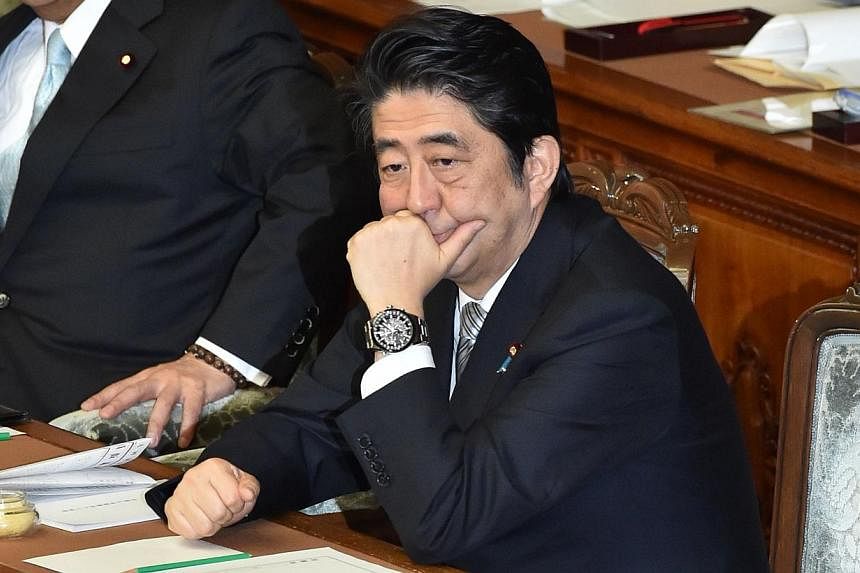TOKYO (BLOOMBERG) - Prime Minister Shinzo Abe may leave out key descriptions of Japan's World War II conduct in a statement to be issued in August on the 70th anniversary of its defeat, he said in a television interview Sunday.
Failure to include terms such as "colonial rule" and "aggression", which were used in statements issued on the 50th and 60th anniversaries, could irritate China and South Korea, just as Mr Abe seeks to mend fractious ties with both nations.
"It's not about whether we use expressions that have been repeated in the past," Mr Abe told public broadcaster NHK. "I want to put out a statement about the thinking of the Abe administration on the 70th anniversary."
He has previously said he upholds the government's past statements on the war "as a whole." In a 1995 statement, then-Prime Minister Tomiichi Murayama said Japan "through its colonial rule and aggression, caused tremendous damage and suffering to the people of many countries, particularly to those of Asian nations."
Prime Minister Junichiro Koizumi used similar phrasing in his own statement a decade later.
"If we base it on the style used in the past, we will run into a debate over little things like which words were left out and which new words put in," Mr Abe said.
Chief Cabinet Secretary Yoshihide Suga told reporters Monday that the government hasn't decided on the content of the statement and would consult experts to help it do so.
Mr Abe inherited sour relations with both China and South Korea when he took the reins in December 2012 amid territorial disputes and continuing recriminations over Japan's past aggression. His December 2013 visit to Yasukuni Shrine, which is seen by many in both countries as a symbol of Japan's militarism, has also hampered attempts to improve ties.
"I can't accept this," Katsuya Okada, the leader of the main opposition Democratic Party of Japan, said on the same NHK program about Abe's comments. "I understand Mr Abe to have said quite clearly that he will not include these terms in his new statement."

